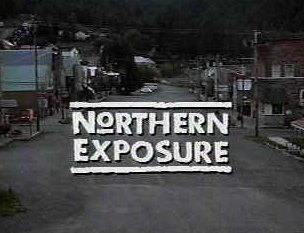
Northern Exposure is an American Northern comedy-drama television series about the eccentric residents of a fictional small town in Alaska that ran on CBS from July 12, 1990, to July 26, 1995, with a total of 110 episodes. It received 57 award nominations during its six-year run and won 27, including the 1992 Primetime Emmy Award for Outstanding Drama Series, two additional Primetime Emmy Awards, four Creative Arts Emmy Awards, and two Golden Globes.

Sir Jonathan Wolfe Miller CBE was an English theatre and opera director, actor, author, television presenter, humourist and physician. After training in medicine and specialising in neurology in the late 1950s, he came to prominence in the early 1960s in the comedy revue Beyond the Fringe with Peter Cook, Dudley Moore and Alan Bennett.

Courage the Cowardly Dog is an American animated comedy horror television series created by John R. Dilworth for Cartoon Network. It was produced by Dilworth's animation studio, Stretch Films. The eponymous character is a dog who lives with an elderly couple in a farmhouse in the middle of Nowhere, a fictional town in Kansas. In each episode, the trio is thrown into bizarre, frequently disturbing, and often paranormal or supernatural adventures. The series is known for its dark, surreal humor and atmosphere.
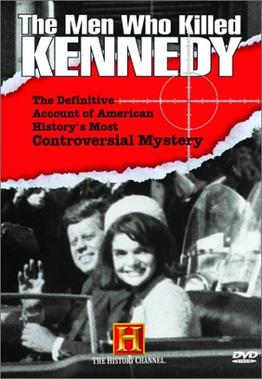
The Men Who Killed Kennedy is a video documentary series by British television network ITV that depicts the assassination of U.S. President John F. Kennedy on November 22, 1963. Originally broadcast in 1988 in two parts, it was rebroadcast in 1991 re-edited to three parts with additional material, and a fourth episode added in 1995. The addition of three further episodes in 2003 caused great controversy, particularly in the final episode implicating Lyndon B. Johnson and the withdrawal of these additional episodes.

Caroline Bouvier Kennedy is an American author, attorney, and diplomat serving as the United States ambassador to Australia since 2022. Kennedy previously served in the Obama administration as the United States ambassador to Japan from 2013 to 2017. She is a member of the Kennedy family as well as the only surviving child of US president John F. Kennedy and first lady Jacqueline Kennedy Onassis.
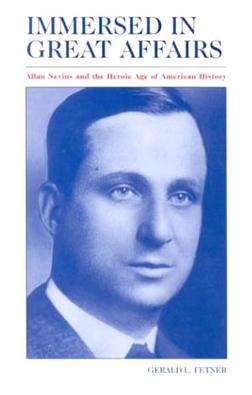
Joseph Allan Nevins was an American historian and journalist, known for his extensive work on the history of the Civil War and his biographies of such figures as Grover Cleveland, Hamilton Fish, Henry Ford, and John D. Rockefeller, as well as his public service. He was a leading exponent of business history and oral history.
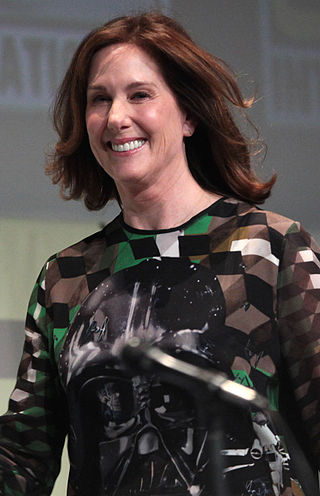
Kathleen Kennedy is an American film producer and president of Lucasfilm. In 1981, she co-founded the production company Amblin Entertainment with Steven Spielberg and her eventual husband Frank Marshall.

Profiles in Courage is a 1956 volume of short biographies describing acts of bravery and integrity by eight United States senators. The book profiles senators who defied the opinions of their party and constituents to do what they felt was right and suffered severe criticism and losses in popularity as a result. It begins with a quote from Edmund Burke on the courage of the English statesman Charles James Fox, in his 1783 "attack upon the tyranny of the East India Company" in the House of Commons, and focuses on mid-19th-century antebellum America and the efforts of senators to delay the American Civil War. Profiles in Courage was widely celebrated and became a bestseller. It includes a foreword by Allan Nevins.

Mario Van Peebles is an American film director and actor best known for appearing in Heartbreak Ridge in 1986 and known for directing and starring in New Jack City in 1991 and USS Indianapolis: Men of Courage in 2016. He is the son of actor and filmmaker Melvin Van Peebles, whom he portrayed in the 2003 biopic Baadasssss!, which he also co-wrote and directed.

Theodore Chaikin Sorensen was an American lawyer, writer, and presidential adviser. He was a speechwriter for President John F. Kennedy, as well as one of his closest advisers. President Kennedy once called him his "intellectual blood bank". Notably, though it was a collaborative effort with Kennedy, Sorensen was generally regarded as the author of the majority of the final text of Profiles in Courage, and stated in his memoir that he helped write the book. Profiles in Courage won Kennedy the 1957 Pulitzer Prize for Biography. Sorensen helped draft Kennedy's inaugural address and was also the primary author of Kennedy's 1962 "We choose to go to the Moon" speech.

David Henry Chase is an American writer, producer and director. He is best known for being the creator, head writer and executive producer of the HBO drama The Sopranos, which aired for six seasons between 1999 and 2007. Chase has also produced and written for shows such as The Rockford Files, I'll Fly Away, and Northern Exposure. He created the original series Almost Grown which aired for 10 episodes in 1988 and 1989. He has won seven Emmy Awards. Chase's film debut came in 2012 with Not Fade Away, followed by The Many Saints of Newark (2021), a prequel film to the TV series The Sopranos.

The Profile in Courage Award is a private award created by the Kennedy family to recognize displays of courage similar to those John F. Kennedy originally described in his book of the same name. It is given to individuals who, by acting in accord with their conscience, risked their careers or lives by pursuing a larger vision of the national, state or local interest in opposition to popular opinion or pressure from constituents or other local interests.
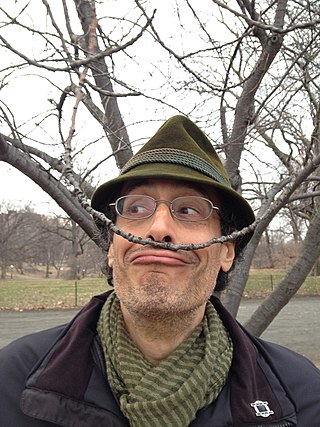
John Russell Dilworth is an American animator, actor, writer, director, storyboard artist, producer and the creator of the animated television series Courage the Cowardly Dog. His work has mainly appeared on PBS, CBS, Showtime, HBO, Fox, ABC, NBC, Arte, CBC Television, YTV, Teletoon, BBC Two, Cartoon Network, Nickelodeon, Comedy Central and MTV, among others.
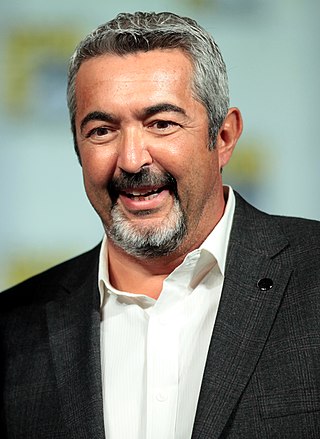
John Francis "Jon" Cassar is a Maltese-Canadian television director and producer, known for his work on the first seven seasons of 24. In 2006, he won the Primetime Emmy Award for Outstanding Directing for a Drama Series for his work on the episode "Day 5: 7:00 a.m. – 8:00 a.m.". In 2011, he produced and directed all episodes of the Canadian-American miniseries The Kennedys, for which he won the Directors Guild of America Award for Outstanding Directing – Television Film and was nominated for the Primetime Emmy Award for Outstanding Miniseries or Movie.
"The Boys of Wexford" is an Irish ballad commemorating the Irish Rebellion of 1798 and, more specifically, the Wexford Rebellion. The aim of rebellion was to remove English control from Irish affairs and it resulted in the 1801 Act of Union.
The John F. Kennedy assassination and the subsequent conspiracy theories surrounding it have been discussed, referenced, or recreated in popular culture numerous times.

John Lawrence Seigenthaler was an American journalist, writer, and political figure. He was known as a prominent defender of First Amendment rights.

The Kennedys is a television miniseries chronicling the lives of the famous political Kennedy family, including key triumphs and tragedies it has experienced. It stars Greg Kinnear, Barry Pepper, Katie Holmes, and Tom Wilkinson among others, and is directed by Jon Cassar. The series premiered in the United States in April 2011 on the Reelz Channel, on History Television in Canada and on the History Channel in the United Kingdom.
Marsha K. Ternus is an American lawyer who served as a justice of the Iowa Supreme Court from September 7, 1993, to December 31, 2010. As a Justice, Ternus was part of the unanimous Iowa Supreme Court ruling legally recognizing same-sex marriage in Iowa, and was removed from office after a judicial retention election, following campaigning by groups opposed to same-sex marriage including the National Organization for Marriage. In 2012, Ternus received a Profile in Courage Award from the John F. Kennedy Library Foundation, along with fellow Justices David L. Baker and Michael Streit.


















